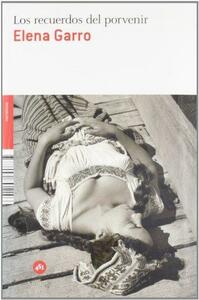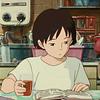Take a photo of a barcode or cover
I did not like it. I tried to be open-minded but I could not contain my frustration.
First of all, I cannot get behind the stylistic choices of the author. The way she chose to tell the story was really grinding on my nerves. Despite being around 300 pages, nothing really happens, at least not on-page because there are constant mentions about stuff that *happened* somewhere at some earlier point but we hardly ever see it. We instead spend most of the time reading about how people stand around and emote. Like I kid you not there *pages* of characters just going through an array of different emotions provoked by seemingly nothing since it is written from the perspective of the city(?) so we don't enter the characters' heads and so their motivations or feelings are never clear. This makes it so goddamn annoying to read.
The second thing is the one that makes me even more frustrated. The women have no impact on the plot despite being a central part of it, let me explain. We spend a lot of time with sex workers and village women, having them at the backdrop of a scene, but they never take any active role in it. They only ever passively comply with whatever the male characters are imposing on them, to the point that when one of them does technically make a decision for herself (bc again it is in reaction to what the male character proposed, but she has the last word ig) it makes little sense to the reader since we had no chance to measure her personality before that point and the thing she decides on is in opposition to common sense tbh.
I'm just pissed thinking about it so I'll end this rant here.
First of all, I cannot get behind the stylistic choices of the author. The way she chose to tell the story was really grinding on my nerves. Despite being around 300 pages, nothing really happens, at least not on-page because there are constant mentions about stuff that *happened* somewhere at some earlier point but we hardly ever see it. We instead spend most of the time reading about how people stand around and emote. Like I kid you not there *pages* of characters just going through an array of different emotions provoked by seemingly nothing since it is written from the perspective of the city(?) so we don't enter the characters' heads and so their motivations or feelings are never clear. This makes it so goddamn annoying to read.
The second thing is the one that makes me even more frustrated. The women have no impact on the plot despite being a central part of it, let me explain. We spend a lot of time with sex workers and village women, having them at the backdrop of a scene, but they never take any active role in it. They only ever passively comply with whatever the male characters are imposing on them, to the point that when one of them does technically make a decision for herself (bc again it is in reaction to what the male character proposed, but she has the last word ig) it makes little sense to the reader since we had no chance to measure her personality before that point and the thing she decides on is in opposition to common sense tbh.
I'm just pissed thinking about it so I'll end this rant here.
inspiring
mysterious
reflective
medium-paced
dark
emotional
mysterious
tense
medium-paced
Plot or Character Driven:
Plot
Strong character development:
Complicated
Loveable characters:
Yes
Diverse cast of characters:
Yes
Flaws of characters a main focus:
Yes
Acá la prosa lo es todo, de verdad que amé demasiado a Elena Garro, quiero leerme más de ella.
El libro es increíblemente atmosférico, un relato del ayer pero contado desde un ensueño del futuro. Una historia condenada a contarse una y otra vez.
Simplemente, creo que es la combinación perfecta de realidad histórica y ficción. No tanta historia pero no tanta ficción tampoco. Creo que porque deja mucho a la imaginación, como si la misma narración no te contara la realidad, sino más bien un espejismo de la misma.
Desconozco si Elena Garro tiene algún libro de poemas o prosas pero me urge leer uno especialmente dedicado a eso 😭 realmente la historia se siente bastante secundaria en relación a la construcción del mundo y los personajes (especialmente el narrador omnisciente y misterioso como personaje).
Siento que debo volver a leerlo para enterarme bien de todo. Algún día...
Pd. Spoiler? No sé si estoy en lo correcto, o si fue la intención de Elena, pero me dio mucho la sensación al final de que Isabel y Julia eran como la misma, diferentes caras de la misma moneda. Me gusta bastante pensar eso.
El libro es increíblemente atmosférico, un relato del ayer pero contado desde un ensueño del futuro. Una historia condenada a contarse una y otra vez.
Simplemente, creo que es la combinación perfecta de realidad histórica y ficción. No tanta historia pero no tanta ficción tampoco. Creo que porque deja mucho a la imaginación, como si la misma narración no te contara la realidad, sino más bien un espejismo de la misma.
Desconozco si Elena Garro tiene algún libro de poemas o prosas pero me urge leer uno especialmente dedicado a eso 😭 realmente la historia se siente bastante secundaria en relación a la construcción del mundo y los personajes (especialmente el narrador omnisciente y misterioso como personaje).
Siento que debo volver a leerlo para enterarme bien de todo. Algún día...
Pd. Spoiler? No sé si estoy en lo correcto, o si fue la intención de Elena, pero me dio mucho la sensación al final de que Isabel y Julia eran como la misma, diferentes caras de la misma moneda. Me gusta bastante pensar eso.
challenging
dark
mysterious
slow-paced
Plot or Character Driven:
A mix
Strong character development:
No
Loveable characters:
No
Diverse cast of characters:
No
Flaws of characters a main focus:
No
I can see why this book is an important milestone in literature, especially in relation to magical realism. That being said, it was a challenging read. The prose is very beautiful and poetic, but the story and the cast of characters can be hard to follow. It's filled with symbolism and powerful (although oppressed) female characters in a very significant context of the development of the Mexican republic. I'm happy I read it, but can't say I thoroughly enjoyed it.
Beautifully creative novel about a small mystical/mythical village in Mexico controlled by a brutal military during the war against the cristeros in 1920s Mexico. Although it is a hard read the language and the ideas conveyed are extraordinary. Well worth a second read.
Quizá me han engañado las expectativas, pero me ha costado muchísimo terminarlo. Narración algo densa, la cantidad de personajes es excesiva y muchos de ellos son irrelevantes al no haber un aparente hilo conductor con lo que se quiere contar. Diálogos más propios de teatro que de novela.
emotional
mysterious
reflective
sad
medium-paced
Plot or Character Driven:
A mix
Strong character development:
Complicated
Loveable characters:
Yes
Diverse cast of characters:
Yes
Flaws of characters a main focus:
Yes
Creo que este libro no es para todos.
Quizás con un mayor conocimiento sobre lo que pasaba México durante los años en los que está ambientado el libro, podría ser más interesante.
Yo sufrí un poco para terminarlo. Por ratos leí pasajes buenísimos, pero luego perdía todo el momentum.
Lo más rescatable, a mi parecer, es el tono. Mucha desdicha, agonía. El libro logra generarte esas emociones.
Quizás con un mayor conocimiento sobre lo que pasaba México durante los años en los que está ambientado el libro, podría ser más interesante.
Yo sufrí un poco para terminarlo. Por ratos leí pasajes buenísimos, pero luego perdía todo el momentum.
Lo más rescatable, a mi parecer, es el tono. Mucha desdicha, agonía. El libro logra generarte esas emociones.
Hacer una reseña me resulta muy difícil. Tengo claro que estamos ante uno de los clásicos más importantes de panorama latinoamericano, y que mejor relata la revolución mexicana.
Todas las elecciones narrativas están escogidas a la perfección para conseguir su objetivo: plasmar el dolor de la revolución.
El narrador, no es ni más ni menos, que el propio pueblo. Y este cambia la perspectiva según la importancia del personaje, o la información que este tenga sobre lo que está sucediendo.
El lugar es un pueblo pequeño alejado de la civilización, perfecto para poder relatar las atrocidades sin poner el punto de mira en nadie.
Cada personaje tiene un rol dentro de la historia, pensados para realizar ciertas acciones que le lleven a este final tan dramático.
No negaré que es una historia muy difícil, no es un libro para todo el mundo. Es una lectura densa, que hay que leer despacio para poder ver y disfrutar los matices. También se debería tener contexto sobre la historia para conocer o entender las referencias.
Todas las elecciones narrativas están escogidas a la perfección para conseguir su objetivo: plasmar el dolor de la revolución.
El narrador, no es ni más ni menos, que el propio pueblo. Y este cambia la perspectiva según la importancia del personaje, o la información que este tenga sobre lo que está sucediendo.
El lugar es un pueblo pequeño alejado de la civilización, perfecto para poder relatar las atrocidades sin poner el punto de mira en nadie.
Cada personaje tiene un rol dentro de la historia, pensados para realizar ciertas acciones que le lleven a este final tan dramático.
No negaré que es una historia muy difícil, no es un libro para todo el mundo. Es una lectura densa, que hay que leer despacio para poder ver y disfrutar los matices. También se debería tener contexto sobre la historia para conocer o entender las referencias.
emotional
reflective
sad
medium-paced
Plot or Character Driven:
Character
Strong character development:
No
Loveable characters:
Yes
Diverse cast of characters:
Yes
Flaws of characters a main focus:
Yes
This one was part of the coffee shop book club.
This one was a ride, not only because the story is actually an emotional rollercoaster but because I was coming from a slow read and the beginning of this book was hard to get into.When I say beginning I mean the first 20-40 pages.
Once I fell into rhythm the book was actually very easy to go through. For me this book constantly kept calling my imagination to small towns in the middle of dusty deserts, with poorer houses made of adobe whose white plaster is starting to come off and shows the underlying mud bricks contrasting with the worked stone facade of the richer houses that is broken up by large windows protected by black wrought metal and whose heavy wood shutter are kept open to allow the wind to come into the shadowy interior and high-ceilinged rooms.
All that said, this book occurs in a town in the south of Mexico. So despite how vivid my envisioning was, I was badly misplaced.
As for the narrative, without spoiling anything, it was a book that had me jumping from one emotion to the other in an almost non-stop fashion. The idyllic town life lulled me into a sense of peace and the gossipy development matched with the backdrop of violence built in my a contemplative vein about the conditions of the women and men involved in the dance of this story and then as the conflict drew near the sensations flipped and I felt stronger surges of anger, despair, hope and all other human flares.
This is a book I would recommend to someone who wants to experience a wide range of emotions and is okay with some of them being deeply uncomfortable; to someone who is looking for how the large historical events leave a deep wound in the lives of the common human and how at the same time, its the "little people" that drive the most raw and intense of events throughout history.
This one was a ride, not only because the story is actually an emotional rollercoaster but because I was coming from a slow read and the beginning of this book was hard to get into.When I say beginning I mean the first 20-40 pages.
Once I fell into rhythm the book was actually very easy to go through. For me this book constantly kept calling my imagination to small towns in the middle of dusty deserts, with poorer houses made of adobe whose white plaster is starting to come off and shows the underlying mud bricks contrasting with the worked stone facade of the richer houses that is broken up by large windows protected by black wrought metal and whose heavy wood shutter are kept open to allow the wind to come into the shadowy interior and high-ceilinged rooms.
All that said, this book occurs in a town in the south of Mexico. So despite how vivid my envisioning was, I was badly misplaced.
As for the narrative, without spoiling anything, it was a book that had me jumping from one emotion to the other in an almost non-stop fashion. The idyllic town life lulled me into a sense of peace and the gossipy development matched with the backdrop of violence built in my a contemplative vein about the conditions of the women and men involved in the dance of this story and then as the conflict drew near the sensations flipped and I felt stronger surges of anger, despair, hope and all other human flares.
This is a book I would recommend to someone who wants to experience a wide range of emotions and is okay with some of them being deeply uncomfortable; to someone who is looking for how the large historical events leave a deep wound in the lives of the common human and how at the same time, its the "little people" that drive the most raw and intense of events throughout history.



